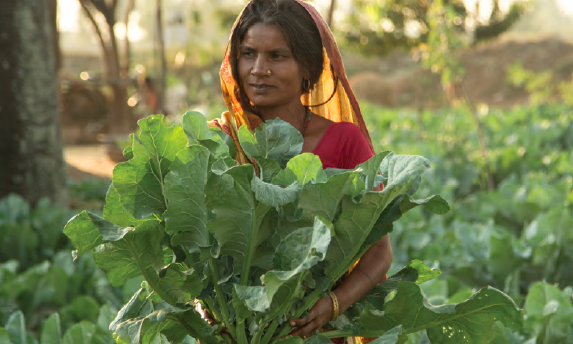Optimising the multi-sectoral nutrition policy cycle: A systems perspective
Summary of Research
Lamstein S, Pomeroy-Stevens A, Webb P, Kennedy E. Optimizing the Multisectoral Nutrition Policy Cycle: A Systems Perspective. Food and Nutrition Bulletin Vol 37, Issue 4_suppl, 2016. www.ncbi.nlm.nih.gov/pubmed/27909256
 There is little empirical evidence or primary research to support the effectiveness of multi-sector approaches to address undernutrition. Despite a lack of hard evidence, there is a resurgence of interest in these approaches. A number of countries and agencies have initiated global and country-level efforts to implement and scale up multi-sector programmes and policies. The United States Agency for International Development (USAID) Feed the Future Initiative; USAID’s Strengthening Partnerships, Results, and Innovations in Nutrition Globally (SPRING) project; the Global Alliance for Improved Nutrition; the World Bank’s Secure Nutrition platform; and the United Nations REACH mechanism are examples. Two key initiatives, the Scaling up Nutrition (SUN) Movement and 1,000 Days, have been endorsed by a range of stakeholders, donors, and countries. As of May 2016, 57 countries had signed up to the SUN Movement, committing to scaling up nutrition efforts and agreeing to abide by several principles of engagement, including “open multi-stakeholder partnerships that bring proven solutions and interventions to scale”.
There is little empirical evidence or primary research to support the effectiveness of multi-sector approaches to address undernutrition. Despite a lack of hard evidence, there is a resurgence of interest in these approaches. A number of countries and agencies have initiated global and country-level efforts to implement and scale up multi-sector programmes and policies. The United States Agency for International Development (USAID) Feed the Future Initiative; USAID’s Strengthening Partnerships, Results, and Innovations in Nutrition Globally (SPRING) project; the Global Alliance for Improved Nutrition; the World Bank’s Secure Nutrition platform; and the United Nations REACH mechanism are examples. Two key initiatives, the Scaling up Nutrition (SUN) Movement and 1,000 Days, have been endorsed by a range of stakeholders, donors, and countries. As of May 2016, 57 countries had signed up to the SUN Movement, committing to scaling up nutrition efforts and agreeing to abide by several principles of engagement, including “open multi-stakeholder partnerships that bring proven solutions and interventions to scale”.
SUN Movement signatories are typically encouraged and supported to develop multi-sector NNAPs and policies. These come in many forms, but share a commitment to nutrition, the inclusion of two or more sectors, and the creation or modification of a coordinating structure or mechanism. Unfortunately, countries are still crippled with operational challenges and complexities of coordination and implementation of NNAPs. A multi-sector approach to nutrition requires thoughtful planning, broad stakeholder engagement across a diverse set of stakeholders (who may not speak the same technical language or have the same goals in mind), and sustained coordination throughout policy and programme implementation. As with any systems-strengthening effort, multi-sector nutrition may also take a longer time to achieve goals, such as scale-up of nutrition activities, because alliances and systems to support such a broad-based effort have to be built. This can create fatigue and doubt among stakeholders when results are not immediate.
This series of articles in the Food and Nutrition Bulletin takes a step toward filling the critical gap in evidence on multi-sector NNAPs. It asks a number of questions about how NNAPs can have the greatest impact on reducing malnutrition. What challenges are involved in designing and implementing NNAPs? Are they understood and used by critical stakeholders? How do stakeholders from multiple sectors and levels understand their role in nutrition planning, budgeting, and implementation? Can the commitment and capabilities of policy stakeholders affect collaborative efforts to achieve national nutrition goals? Can NNAPs influence nutrition governance, or the extent to which nutrition is prioritised in plans and budgets?
This supplement presents findings from studies conducted in Ethiopia, Nepal and Uganda, all of which have a multi-sector nutrition plan or policy in place.


